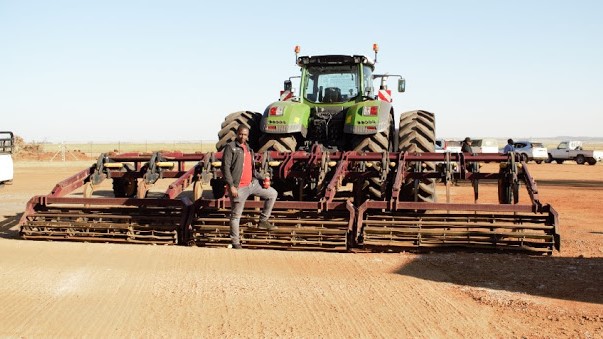Challenges of agricultural mechanization in sub-Saharan Africa
Agricultural mechanization is one of the most essential aspects in the development of the agricultural sector.However, particularly in sub-Saharan African countries, many constraints have hindered smallholder farmers from accessing farm mechanization services, especially poor households. As a matter of fact, according to studies conducted by the FAO, the work of land preparation and crop care are still dominated by hand tools. For example, in West African countries, 70 percent of farm labor is manual.
This dependency on manual labor has negatively impacted agricultural productivity, making it hard to achieve noticeable progress in self-sufficiency and poverty reduction in the continent.
The cost of farm machinery is often a limiting factor for smallholder producers who have low purchasing power. This makes it hard for them to have access to basic services or the more advanced agricultural mechanization.
Among the many solutions that have been proposed, the development of hire services of agricultural equipment has been on the table for a long time. Numerous studies conducted on one of the factors responsible for the development of mechanization in Asia and other developing countries in the 1970s and 1980s revealed that the presence of medium-sized operators and other contractors providing mechanization to small farmers played a key role.
For many decades, rental services in agricultural mechanization in Sub-Saharan Africa have been supplied by the public sector. Sad to say, most machinery hire services championed by the government have all failed. I am not aware of any successful government project, but I know many that have failed. Therefore, thinking of the government as a potential solution in the provision of machinery hire services may not be a very good thing to do.
Thus, it appears that despite the efforts made by governments, the situation of the agricultural mechanization in Africa still remains far from meeting smallholder’s expectations. As I mentioned earlier in a different article, the government should focus on incentivizing the development of private hire services.
Talking of the numerous constraints that limit the development of mechanization in Africa, I can list down the following constraints:
- The dominance of enclosed small farms,
- Climate change and low land productivity,
- Poor technical knowledge of the machinery, leading to poor quality of after-sales service and maintenance,
- Low quality of certain equipment manufactured locally or imported. Such equipment are not efficient in carrying out farm activities and have a very short life span,
- Absence of dealer representatives in the production areas. Most dealers are in the capital cities only,
- Absence of financing mechanism adapted to agricultural mechanization
- Land tenure problem which remains to be a constraint on land investment including agricultural mechanization,
- Insecurity, violence, ethnic and tribal wars, terrorism, etc in agricultural areas,
- Lack of, or insufficient after-sales services in the field,
- Many countries lack a long-term agricultural development plan,
The above are key limiting factors to mechanization and agricultural development in general.
It is important to mention that mechanization is the greatest enabler of industrial agriculture that Africa is relentless running after. However, as we pursue to mechanize our farms, we need to equally appreciate the fact that sustainable industrial farming will only be achieved through technology-enabled mechanization such as precision agriculture, conservation tillage, controlled traffic farming etc. With this regard, Africa has two things to think about at the same time: Industrialization and Sustainability.
Follow me on LinkedIn


1 Comments
How can i join the green energy to get solar pump system
ReplyDeletePost a Comment